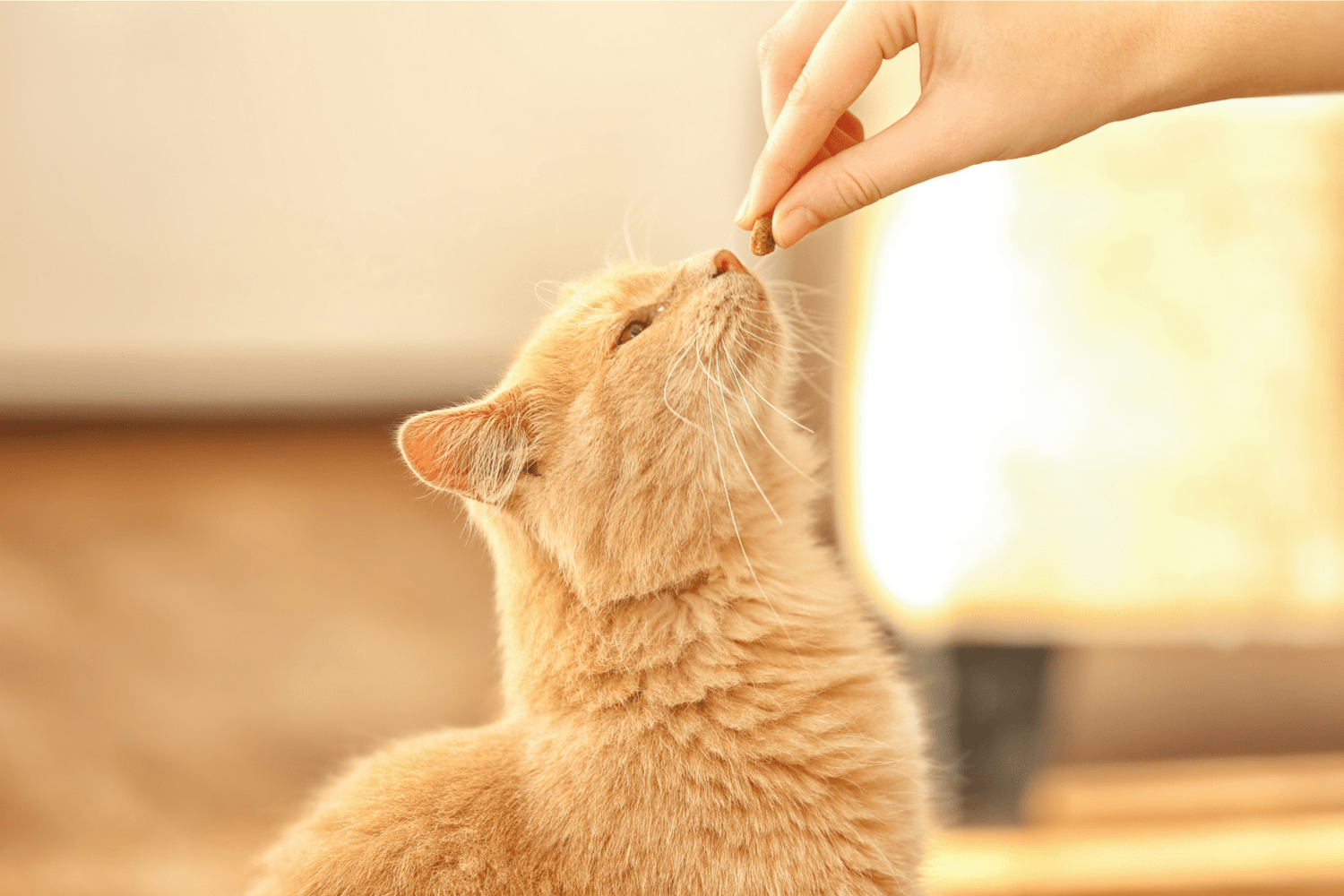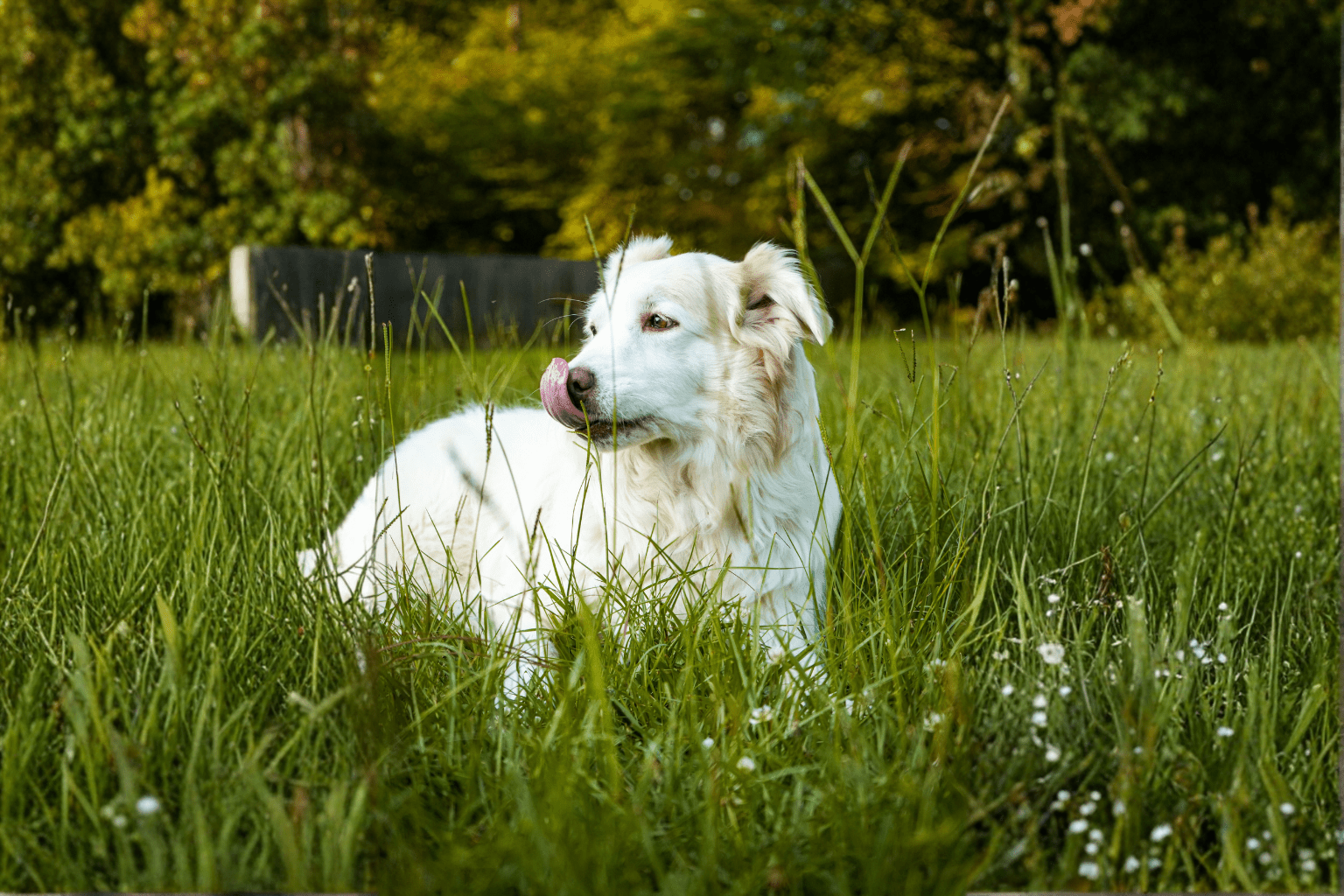Key Takeaways
- Proper nutrition is essential for maintaining a cat's health and happiness at every stage of life.
- Feeding a cat involves more than just providing food; it requires understanding their unique dietary needs.
- Addressing picky eating habits can improve a cat's overall well-being.
- Managing a cat's weight is important to prevent health issues.
- Senior cats often need special dietary considerations to support their changing appetites.
Table of Contents
- What Does Your Cat Truly Need? The Basics of Feline Nutrition
- Wet Food, Dry Food, and Beyond, What's Right for Your Cat?
- Creating Your Cat's Feeding Schedule, Routines for Every Day and Every Cat
- Preventing Obesity & Overfeeding, Keeping Cats Slim and Active
- Feeding Challenges, Real Solutions for Picky, Fast-Eating, and Special-Needs Cats
- How to Choose the Right Cat Food, Practical Guide for Label-Checking Pet Parents
- Water, Hydration, and Supporting Overall Wellness
- When to Ask Your Vet, Partnering for Your Cat's Best Life
- Feeding Accessories & Smart Upgrades for Easier Mealtimes
- Supporting Your Cat's Health with Natural Supplements
- Creating Mealtime Harmony in Multi-Cat Homes
- The Future of Feline Nutrition
- Your Next Steps for Better Cat Nutrition
Feeding the Cat, Real Solutions for Every Age
Every cat owner faces the same daily question: what's the best way to keep my feline friend healthy and happy through proper nutrition? Feeding the cat isn't just about filling a bowl, it's about understanding your cat's unique needs, from kittenhood through their golden years. Whether you're navigating picky eating habits, managing weight concerns, or supporting a senior cat's changing appetite, the right approach makes all the difference. managing weight concerns can be easier with the right digestive support, especially for cats prone to hairballs or constipation.
As someone who's spent years helping pet parents find gentle, natural solutions, I've seen how proper nutrition paired with supportive care transforms cats' lives. supporting a senior cat's changing appetite may also involve addressing joint discomfort, which can impact eating habits. Let's explore practical feeding strategies that work for real cats in real homes.
For more insight into how cats experience the world, you might enjoy reading about how cats navigate the world through their whiskers.
What Does Your Cat Truly Need? The Basics of Feline Nutrition
Cats are obligate carnivores, meaning their bodies require nutrients found only in animal tissue. Unlike dogs who can adapt to various diets, cats need specific amino acids like taurine that only come from meat sources.
Your cat's nutritional needs shift dramatically with age. Kittens require nearly twice the protein and fat of adult cats to fuel rapid growth, feed them 3-4 small meals daily using kitten-specific formulas. Adult cats (1-8 years) thrive on balanced maintenance diets with moderate calories, while senior cats often need softer foods and may benefit from joint-supporting supplements as their bodies age.
Special health conditions demand tailored approaches. Diabetic cats benefit from lower-carbohydrate diets, while cats with kidney concerns may need modified protein levels. For cats with sensitive stomachs or food allergies, gentle digestive support through natural remedies can ease discomfort without harsh side effects. gentle digestive support through natural remedies is especially helpful for cats with allergies or immune sensitivities.
Wet Food, Dry Food, and Beyond, What's Right for Your Cat?

| Feature | Wet Food | Dry Food | Natural Supplements |
|---|---|---|---|
| Moisture Content | 70-80% | 6-10% | Works with any food |
| Palatability | Highly appealing | Variable acceptance | Tasteless pellets |
| Storage | Refrigerate after opening | Shelf-stable | Room temperature |
| Cost | Higher per serving | Budget-friendly | Multi-use value |
| Convenience | Portion control easy | Free-choice feeding possible | Simple administration |
Wet food excels at hydration, its high moisture content helps cats meet their daily fluid needs naturally. Remove uneaten portions after two hours to prevent spoilage. Dry kibble offers convenience and cost savings, especially for multi-cat households, but store it in airtight containers and replace opened bags within 30 days.
Many successful cat parents combine both textures, rotating between wet and dry meals for variety. When transitioning between foods, blend old and new gradually over 7-10 days to avoid digestive upset. Natural pellet supplements work seamlessly with any feeding approach, supporting your cat's health without changing their preferred meal routine.
For a deeper dive into choosing the best wet food for your pet, check out what is the best wet cat food.
Creating Your Cat's Feeding Schedule, Routines for Every Day and Every Cat
Cats thrive on predictable meal schedules that reduce anxiety and help you monitor their health. Scheduled feeding times make it easier to notice appetite changes that might signal health concerns early.
Age determines frequency: kittens need 3-4 meals daily, older kittens transition to twice daily, while most adult and senior cats do well with 1-2 meals per day. Diabetic cats particularly benefit from consistent meal timing to support stable blood sugar levels.
For portion control, use your cat's weight and activity level as guides, indoor cats typically need fewer calories than their outdoor counterparts. In multi-cat homes, separate feeding areas prevent food stealing and ensure each cat gets their fair share. Success often comes from simple solutions like feeding shy cats in quiet corners away from more dominant personalities.
Preventing Obesity & Overfeeding, Keeping Cats Slim and Active
Feline obesity, defined as 20% or more above ideal weight, leads to diabetes, arthritis, and skin problems. The most common mistake? Eyeballing portions instead of measuring precisely.
Use measuring cups for every meal and follow feeding guidelines as starting points, adjusting for your cat's true energy needs. Monthly weigh-ins catch gradual weight gain before it becomes problematic. You should be able to feel your cat's ribs with gentle pressure and see a visible waist when viewing from above. Monthly weigh-ins are even more effective when paired with weight management support for cats struggling to shed extra pounds.
Build movement into daily routines through interactive play sessions and vertical climbing opportunities. Cats who've lost excess weight often rediscover their playful side, bringing joy back to both pet and owner.
Feeding Challenges, Real Solutions for Picky, Fast-Eating, and Special-Needs Cats

When cats refuse food, rule out stress, illness, or dental pain first. Simple fixes include warming food slightly, changing textures, or adding appealing toppers. Natural digestive support can help cats with sensitive stomachs enjoy mealtime again without the mess of liquid medications.
Fast eaters risk vomiting and choking. Puzzle feeders, slow-feeder bowls, or spreading food across a flat plate can naturally pace their eating. Our gentle pellet supplements work perfectly here too, sprinkle them over meals to encourage slower, more mindful eating without changing their favorite food.
Food allergies and sensitive stomachs show up as itching, vomiting, or diarrhea. The solution often involves transitioning to hypoallergenic diets while supporting digestive comfort. BestLife4Pets formulas offer targeted support that works alongside any diet change, helping cats find their way back to happy mealtimes.
Begging and mealtime drama calls for clear boundaries. Set consistent meal times, ignore non-mealtime pleas, and reward calm behavior. In multi-pet homes, separate feeding areas prevent competition and ensure everyone gets their fair share.
How to Choose the Right Cat Food, Practical Guide for Label-Checking Pet Parents
Reading food labels becomes simple once you know the basics. The first ingredient should always be an animal protein, real meat, not meal or by-products. "Complete and balanced" means the food meets basic nutritional standards, but quality varies widely between brands.
Premium versus budget brands often differ in sourcing transparency and ingredient quality rather than just price. Look for companies that clearly state where ingredients come from and how they're processed. BestLife4Pets stands apart by combining gentle, effective formulas with a commitment to rescue donations, every purchase supports animals in need.
| Criteria | Budget Brands | Premium Brands | BestLife4Pets Supplements |
|---|---|---|---|
| Primary Focus | Cost efficiency | High-quality ingredients | Gentle, targeted support |
| Ingredient Transparency | Basic labeling | Detailed sourcing info | Complete ingredient disclosure |
| Palatability | Variable acceptance | Usually well-accepted | Tasteless pellets, no rejection |
| Special Dietary Needs | Limited options | Extensive specialized lines | Works with any existing diet |
| Community Impact | Minimal | Varies by brand | Direct rescue support |
Homemade diets require careful planning to meet all nutritional needs. While some pet parents prefer this route, most cats thrive on quality commercial foods supplemented with targeted support. When in doubt, consult your veterinarian or a certified animal nutritionist.
Treats and extras should never replace balanced meals but can enhance training and bonding. Our pellets work beautifully as gentle motivators for reluctant eaters while providing therapeutic benefits. For more information on common health issues as cats age, see aging cat common health issues.
Water, Hydration, and Supporting Overall Wellness
Adult cats need approximately 50-60ml of water per kilogram of body weight daily. Many cats don't drink enough, leading to concentrated urine and potential kidney issues. Signs of dehydration include lethargy, dry gums, and reduced skin elasticity. For more details on feline nutrition and hydration, see proper nutrition for cats.
Encouraging healthy drinking habits starts with fresh, clean water in multiple locations. Some cats prefer moving water from fountains, while others like wide, shallow bowls. Wet food significantly contributes to daily water intake, making it valuable for cats who don't drink enough.
Natural supplements support hydration efforts by working with any feeding routine. Our pellets dissolve easily when mixed with wet food or can be given directly, making them perfect for cats who need extra support but resist liquid medications.
Hydration Tip: If your cat suddenly increases or decreases water consumption, contact your veterinarian. Changes in drinking habits often signal underlying health issues that need attention.
When to Ask Your Vet, Partnering for Your Cat's Best Life

Sudden changes in appetite, persistent vomiting, diarrhea, or rapid weight changes warrant immediate veterinary attention. These symptoms can indicate serious health issues that require professional diagnosis and treatment.
Major dietary transitions benefit from veterinary guidance, especially for kittens, senior cats, or those with chronic conditions. Your vet can recommend the best approach for introducing new foods or supplements while monitoring your cat's response.
Collaborative care works best when natural support complements professional veterinary treatment. Our remedies are designed to support the body's natural healing processes, never to replace professional medical care. Success stories from our community consistently highlight the power of combining veterinary expertise with gentle, natural support.
BestLife4Pets supplements are not a substitute for professional veterinary advice. Always consult your veterinarian before starting any new health regimen for your pet.
Feeding Accessories & Smart Upgrades for Easier Mealtimes
Bowl selection matters for both health and convenience. Stainless steel and ceramic bowls resist bacteria better than plastic and won't retain odors. Elevated feeders can help senior cats or those with arthritis eat more comfortably. Stainless steel and ceramic bowls resist bacteria better than plastic, which is also important for maintaining dental health and fresh breath.
Storage solutions keep food fresh and supplements organized. Airtight containers prevent dry food from going stale, while portion-control dispensers help maintain consistent meal sizes. For feeding the cat with supplements, small pill organizers keep pellets fresh and make daily dosing simple.
Automatic feeders work well for busy households or cats who need precise meal timing. Look for models with portion control and battery backup to maintain your cat's routine even during power outages.
Supporting Your Cat's Health with Natural Supplements
Even the best diet sometimes needs extra support. Senior cats may benefit from joint support, while rescue cats often need digestive assistance after stress or poor nutrition. Natural pellet supplements integrate seamlessly into any feeding routine without changing your cat's preferred food. Natural pellet supplements integrate seamlessly into any feeding routine and can be found in convenient bundles for different health needs.
BestLife4Pets pellets stand out because they work with wet food, dry food, or treats without altering taste or texture. Unlike liquid supplements that many cats reject, these tasteless pellets dissolve easily and support the body's natural healing processes.
Why Pellets Work Better: No refrigeration needed, no messy dosing, and cats can't taste them mixed into any meal. Perfect for multi-cat households where individual dosing matters.
Community members consistently report success with our gentle formulas because they address root causes rather than masking symptoms. Whether supporting digestive comfort, joint mobility, or overall wellness, the pellets complement your cat's nutrition without disrupting established feeding routines. For more on feline nutrition guidelines, visit nutrition & feeding guidelines for cats.
Creating Mealtime Harmony in Multi-Cat Homes

Multiple cats mean multiple personalities, appetites, and dietary needs. Success comes from preventing competition and ensuring each cat gets proper nutrition without stress or food guarding behaviors.
Separate feeding stations eliminate most conflicts. Place bowls in different rooms or use feeding schedules where cats eat at different times. This approach also makes monitoring individual appetites easier, helping you spot health changes early.
For households managing both healthy cats and those needing special diets, pellet supplements offer flexibility. You can provide the same base food while addressing individual health needs through targeted supplementation mixed into each cat's portion. addressing individual health needs through targeted supplementation is especially important for cats with urinary or bladder concerns.
Multi-cat feeding success works well for larger groups: establish quiet feeding zones, use timers for structured meals, and keep supplement dosing simple with pre-portioned daily amounts. This system reduces stress while ensuring every cat receives proper nutrition and any needed health support.
The Future of Feline Nutrition
Cat nutrition continues evolving as we better understand feline biology and individual needs. Personalized nutrition based on genetics, activity levels, and health markers may become standard, similar to human wellness trends.
Technology integration already helps many pet parents track feeding patterns, weight changes, and health metrics. Smart feeders and health monitoring apps provide data that supports better decision-making about feeding the cat throughout different life stages.
The growing focus on natural, minimally processed options reflects pet parents' desire for cleaner ingredients and gentler approaches to health support. This trend favors supplements like pellets that work alongside quality nutrition rather than replacing it with synthetic alternatives.
Preventive care through nutrition will likely expand, with more emphasis on supporting the body's natural systems before problems develop. This philosophy aligns perfectly with natural supplementation that enhances rather than overrides normal biological processes.
Your Next Steps for Better Cat Nutrition
Feeding the cat successfully combines understanding your individual cat's needs with consistent, loving care. Start with high-quality base nutrition appropriate for your cat's life stage, then address specific health considerations through targeted support.
Whether you're managing a kitten's growth, supporting a senior cat's comfort, or helping a rescue cat recover from stress, the foundation remains the same: regular meals, fresh water, and gentle support for the body's natural healing abilities. helping a rescue cat recover from stress can be made easier with calming and immune support remedies.
BestLife4Pets pellets complement any feeding approach because they're designed for real life with real cats. No complicated dosing schedules, no rejected liquid medications, and no disruption to established routines that already work for your family.
Remember that feeding the cat is about more than just nutrition, it's about building trust, showing love, and supporting your cat's best life at every stage. Small, consistent improvements in diet and natural health support create lasting benefits for both you and your feline companion.
Frequently Asked Questions
What are the key nutritional needs of cats at different life stages, and how should their diets be adjusted accordingly?
Cats need diets tailored to their life stage because their nutritional requirements change as they grow. Kittens require nutrient-rich food to support rapid growth, adult cats need balanced maintenance diets, and seniors benefit from formulas that support joint health and changing appetites. Adjusting portion sizes and offering age-appropriate food helps keep cats healthy throughout their lives.
How can I effectively manage my cat's weight and prevent obesity through proper feeding practices?
Managing your cat’s weight starts with controlling portion sizes and feeding on a consistent schedule rather than free-feeding. Using puzzle feeders can slow down fast eaters, and choosing nutrient-dense food helps your cat feel satisfied without overeating. Regular play and exercise combined with mindful feeding support a healthy, active lifestyle.
What strategies can help address picky eating habits or special dietary needs in cats?
To support picky eaters, try offering a variety of textures and flavors while keeping changes gradual to avoid stress. For cats with special dietary needs, consult your vet and consider gentle, natural supplements that support digestion and overall wellness. Patience and observation help you find what your cat enjoys and what best supports their health.
Why is wet food recommended for cats, and how does it contribute to their hydration and overall health?
Wet food helps increase your cat’s water intake, which is important because cats naturally drink less water than they need. This added hydration supports kidney health and can ease digestion. Including wet food in your cat’s diet is a simple way to keep them well-hydrated and feeling their best.



